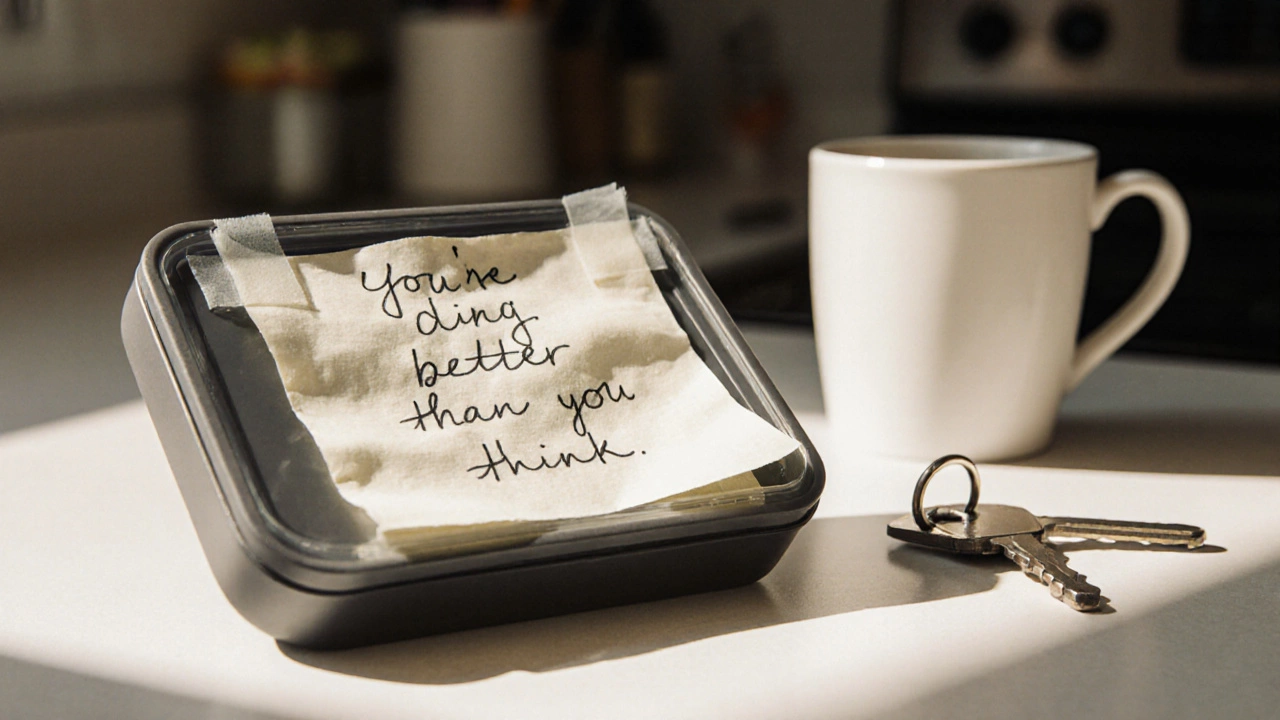Most relationships don’t end because of one big fight. They fade out quietly-like a phone left on silent, missed dinners, growing silence at the dinner table, or the way you stop saying "I love you" without realizing it. If you’re reading this, you’re probably feeling that quiet ache. Maybe you’ve noticed your partner pulling away. Or maybe you’re the one who’s checked out. Either way, you don’t want to lose them. And that’s a good sign. Because if you care enough to ask how to prevent a breakup, you still have a chance.
Stop ignoring the small cracks
Breakups rarely happen out of nowhere. They’re built over months of small, unaddressed wounds. You skip a birthday. They forget to text back after a long day. You stop asking how their day went. They stop sharing their worries. These aren’t dramatic betrayals. They’re quiet erasions of connection.Research from the Gottman Institute shows that couples who stay together don’t avoid conflict-they handle it differently. The key isn’t never arguing. It’s how you respond after. If you shut down, blame, or walk away when tensions rise, you train your partner to stop reaching out. Over time, they stop trying. That’s when the real breakup begins-not with a scream, but with silence.
Fix this by making small repairs daily. Say "I’m sorry" even when you think you’re not entirely wrong. Ask "What did you need in that moment?" instead of defending yourself. If your partner says they’re upset, don’t fix it right away. Just listen. Say: "That sounds really hard. Tell me more." That simple shift rebuilds trust faster than any grand gesture.
Rebuild emotional safety
Emotional safety is the invisible foundation of every lasting relationship. It’s the feeling that you can be messy, tired, angry, or scared-and your partner won’t use it against you.Think about the last time you opened up. Did they laugh? Roll their eyes? Change the subject? Even once is enough to make you close off forever. Emotional safety isn’t about being perfect. It’s about being predictable. Your partner needs to know: if I’m vulnerable, I won’t be punished.
Start by removing sarcasm from your disagreements. It’s not witty. It’s weaponized. Replace it with curiosity. Instead of: "Oh, so now you’re an expert on my feelings?" try: "I didn’t realize you felt that way. Can you help me understand?"
Also, stop using the past as ammunition. "You always..." and "You never..." are lies. No one does anything 100% of the time. Those phrases shut down conversation. Instead, focus on the specific moment: "When you left the dishes overnight, I felt ignored. It made me wonder if I’m not a priority." That’s not an attack. That’s a map to their heart.

Reconnect through routine, not romance
You don’t need candlelit dinners or surprise trips to save your relationship. You need consistency. The magic isn’t in grand events. It’s in the tiny rituals that say: "I still choose you."- Make coffee together every morning-even if you’re both still half-asleep.
- Walk for 10 minutes after dinner without phones.
- Text one thing you appreciated about them that day before bed.
- Hold hands while watching TV-even if you’re both scrolling.
These aren’t "date night" fixes. They’re daily anchors. In a study of 200 long-term couples, those who maintained at least two consistent daily rituals reported 40% higher satisfaction than those who didn’t. It’s not about the activity. It’s about the message: "You’re still here, and I’m still here with you."
Try this: Pick one tiny ritual you both used to do-maybe Sunday pancakes, or texting goodnight memes-and bring it back. No pressure. No expectations. Just show up.
Stop assuming you know what they need
We all think we know what our partner wants. But assumptions are the silent killers of intimacy."They just need space." "They don’t like talking about feelings." "They’re just tired." These are guesses. And guesses become truths when no one checks.
Instead, ask. Directly. Simply. "What do you need from me right now?" Not "Do you need space?" That’s a yes/no trap. Ask for details. "Is it time? Attention? Quiet? A hug? A walk?"
And be ready for the answer to change. What they needed last month might not be what they need today. People grow. Circumstances shift. Your job isn’t to fix them. It’s to stay curious.
Try this exercise: Once a week, sit down and ask each other: "What’s one thing I did this week that made you feel loved? And one thing I did that made you feel unseen?" No defending. No justifying. Just listen. Write it down. Do it again next week.

Don’t wait for them to change-change how you show up
You can’t control your partner. You can’t force them to love you more. But you can change how you show up.Most people wait for their partner to fix things. They think: "If they’d just stop being so distant, or start communicating better, then we’d be okay." But relationships are mirrors. When you stop waiting for them to change, and start changing your own behavior, everything shifts.
What if you stopped waiting for them to initiate conversation-and started asking open-ended questions every night? What if you stopped complaining about how they handle money-and started sharing your own financial fears? What if you stopped trying to win arguments-and started trying to understand?
One woman I spoke to in Leeds stopped trying to get her husband to talk about his stress. Instead, she started leaving little notes in his lunchbox: "You’re doing better than you think." After three weeks, he started talking. Not because she forced it. Because she made it safe.
Your job isn’t to fix them. It’s to create a space where they want to be themselves. That’s how you prevent a breakup-not by begging them to stay, but by becoming someone they can’t imagine leaving.
Know when to walk away
Not every relationship can be saved. And that’s okay.Some breakups aren’t failures. They’re acts of self-respect. If your partner refuses to engage, lies consistently, disrespects your boundaries, or makes you feel like you’re always walking on eggshells-you’re not failing. You’re surviving.
Ask yourself: "Do I feel like myself around them?" Not "Do they make me happy?" But: "Do I feel safe, seen, and respected?" If the answer is no, and they show no interest in changing, staying won’t heal you. It will just delay the pain.
Preventing a breakup isn’t about holding on tighter. It’s about choosing connection over control. If both of you are still trying, keep going. If only one of you is fighting, it’s not a relationship anymore. It’s a one-person job.
You deserve to be loved in a way that doesn’t drain you. And if that’s not happening? Walking away isn’t giving up. It’s choosing yourself.






